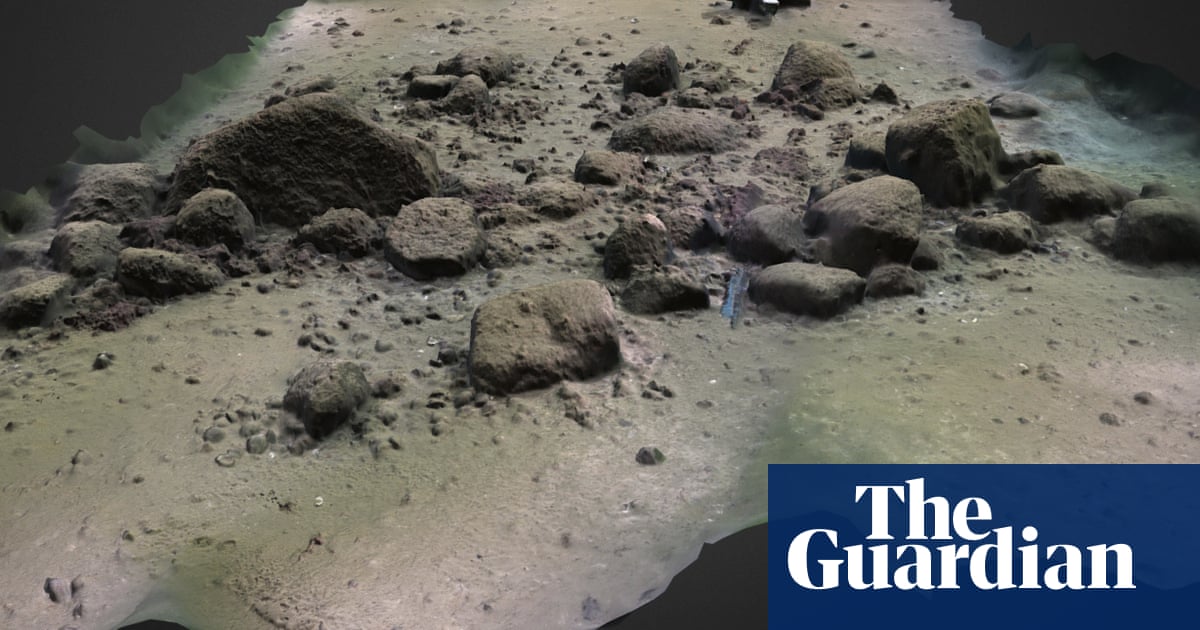A stone age wall discovered beneath the waves off Germany’s Baltic coast may be the oldest known megastructure built by humans in Europe, researchers say.
The wall, which stretches for nearly a kilometre along the seafloor in the Bay of Mecklenburg, was spotted by accident when scientists operated a multibeam sonar system from a research vessel on a student trip about 10km (six miles) offshore.
Closer inspection of the structure, named the Blinkerwall, revealed about 1,400 smaller stones that appear to have been positioned to connect nearly 300 larger boulders, many of which were too heavy for groups of humans to have moved.
The submerged wall, described as a “thrilling discovery”, is covered by 21 metres of water, but researchers believe it was constructed by hunter-gatherers on land next to a lake or marsh more than 10,000 years ago.
While the purpose of the wall is hard to prove, scientists suspect it served as a driving lane for hunters in pursuit of herds of reindeer.



This is the best summary I could come up with:
A stone age wall discovered beneath the waves off Germany’s Baltic coast may be the oldest known megastructure built by humans in Europe, researchers say.
The wall, which stretches for nearly a kilometre along the seafloor in the Bay of Mecklenburg, was spotted by accident when scientists operated a multibeam sonar system from a research vessel on a student trip about 10km (six miles) offshore.
Closer inspection of the structure, named the Blinkerwall, revealed about 1,400 smaller stones that appear to have been positioned to connect nearly 300 larger boulders, many of which were too heavy for groups of humans to have moved.
Alternatively, the wall may have forced the animals into the nearby lake, slowing them down and making them easy pickings for humans lying in wait in canoes armed with spears or bows and arrows.
The angle of the wall, which is mostly less than 1 metre high, changes direction when it meets the larger boulders, suggesting the piles of smaller stones were positioned intentionally to link them up.
Geersen is now keen to revisit the site to reconstruct the ancient landscape and search for animal bones and human artefacts, such as projectiles used in hunting, which may be buried in sediments around the wall.
The original article contains 466 words, the summary contains 207 words. Saved 56%. I’m a bot and I’m open source!